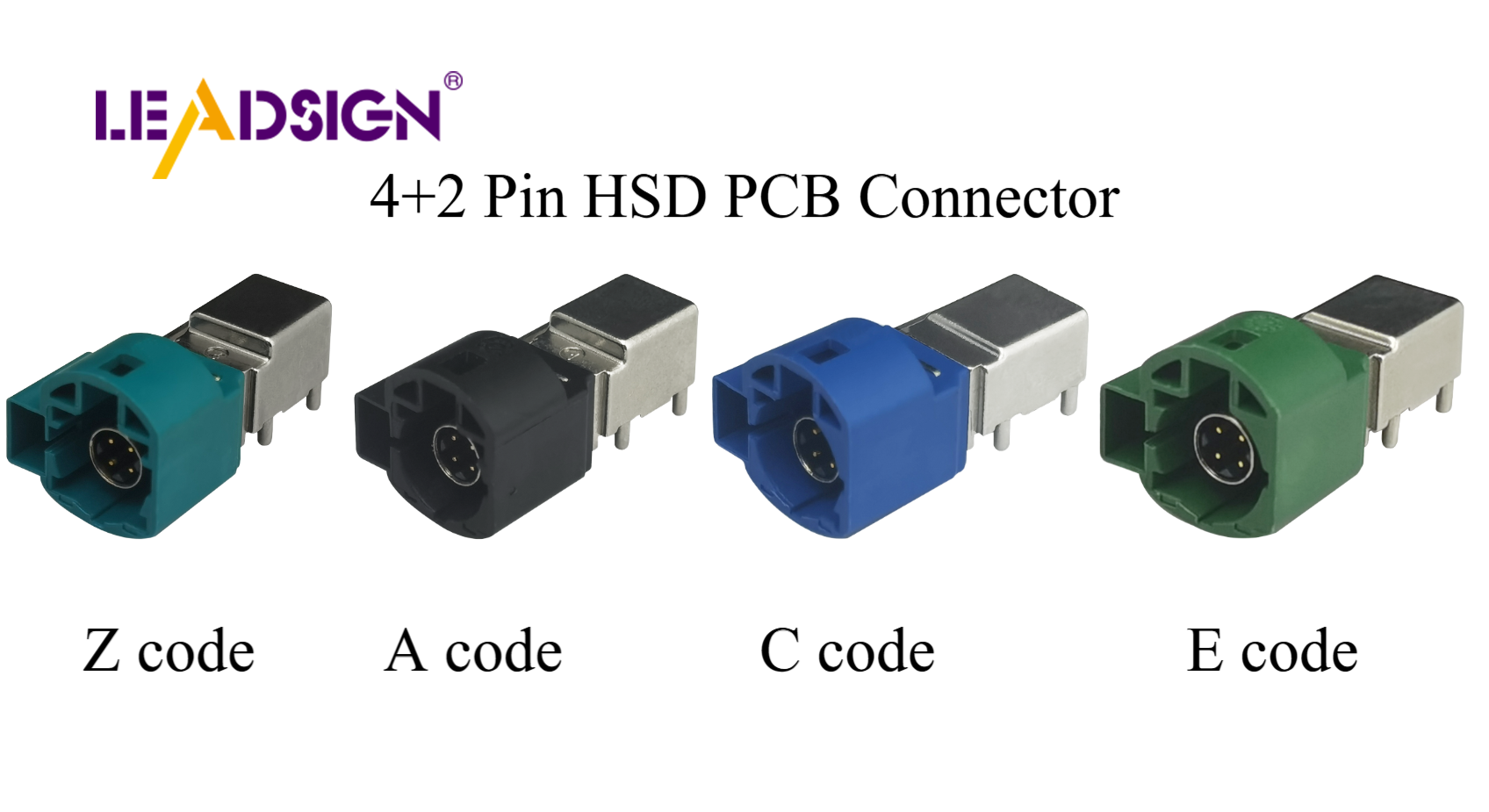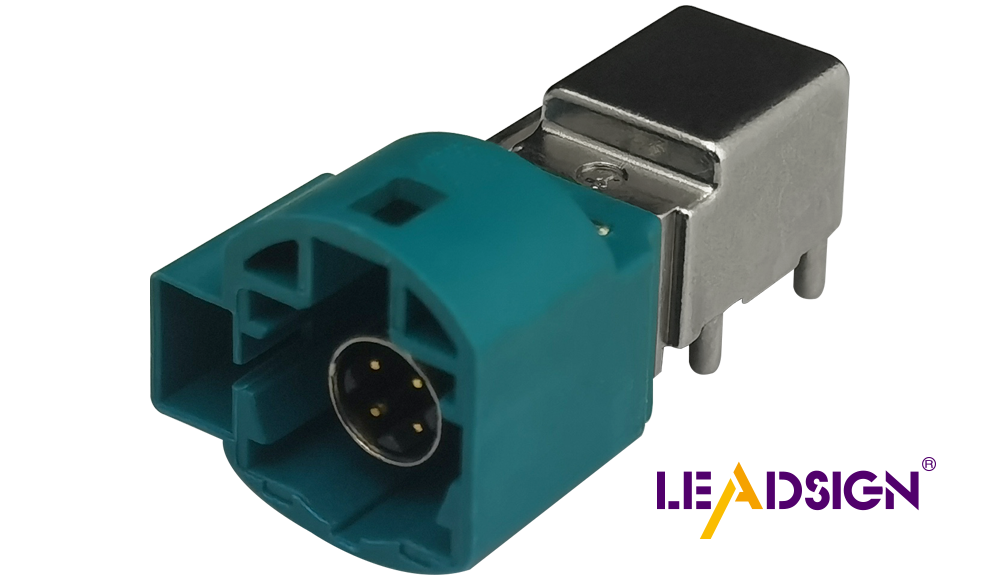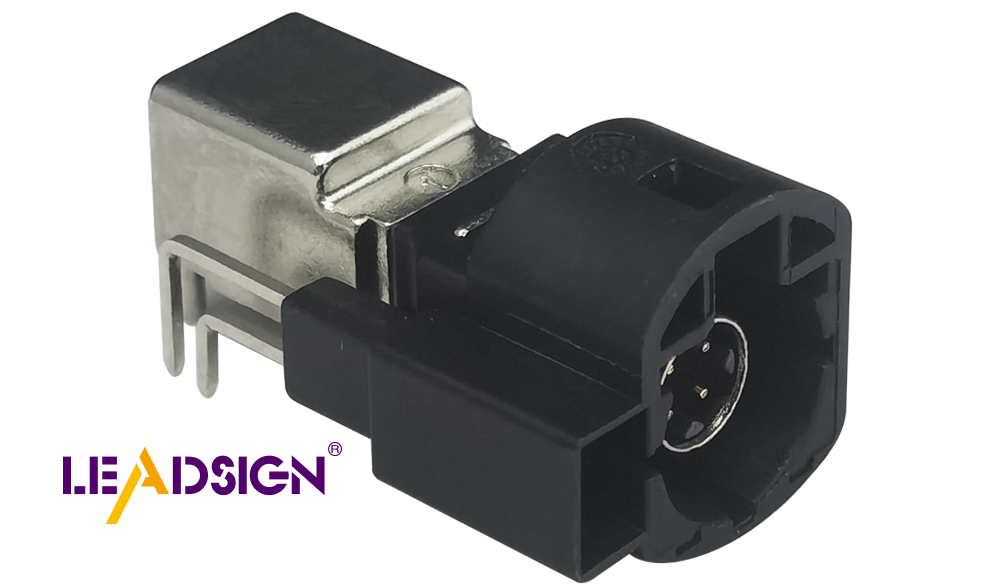The Future of Automotive Plugs and Connectors

Automotive plugs and connectors are crucial for car electrical systems. They enable different car parts to work together seamlessly, facilitating advanced features such as safety systems and entertainment. The rise of electric cars has heightened the demand for robust and efficient connectors. Innovations in automotive electronics aim to enhance data transfer speeds while also focusing on improving the durability of connectors. As automotive wiring becomes more complex, the need for superior electrical systems increases, driving rapid growth in the connector market. These developments illustrate how automotive plugs and connectors contribute to better vehicle performance and environmental sustainability.
Key Takeaways
Automotive plugs and connectors are essential for the functionality of modern vehicles, enabling advanced features like safety systems and entertainment.
The shift towards electric and smart cars demands smaller, faster, and more durable connectors to meet the complex wiring needs and space constraints.
Innovations in connector technology, such as smart connectors, enhance vehicle reliability by detecting issues and supporting wireless charging.
Eco-friendly materials are becoming a priority in connector production, helping reduce waste and support sustainability in the automotive industry.
The automotive connector market is rapidly growing, driven by the need for high-performance connectors that can handle the demands of electric and self-driving vehicles.
Modular and flexible connector designs allow for easier repairs and adaptations, making them ideal for the evolving landscape of automotive technology.
Staying informed about trends in automotive connectors can empower consumers to choose vehicles that are safer, more efficient, and environmentally friendly.
Overview of Traditional Connectors
Old car connectors have been used for many years. They connected basic parts like lights, batteries, and ignitions. These connectors were simple and cheap to make.
You can spot them by their basic pin-and-socket design. They worked well for slow data and power needs. Older cars didn’t need much, so these connectors were fine. But as cars got smarter, these old connectors showed problems.
Limitations of Traditional Connectors
Old connectors can’t handle today’s car technology needs. Modern cars need fast data for things like smart screens and self-driving.
Another problem is their size. Old connectors are big and take up too much space. Small electric cars need smaller parts, but these don’t fit well. Also, they don’t work well in tough conditions. Heat, shaking, and water can break them.
To fix this, new connector ideas are being made. Some combine features to work better in hard conditions. This shows how the connector market is changing to meet new needs.
As electric and smart cars grow, better connectors are needed. The market for these advanced connectors is growing fast. This will lead to smarter and stronger solutions for cars.
Latest Trends and Innovations in Automotive Plugs and Connectors

Fast Data Transfer in Modern Cars
Today’s cars use advanced systems like cameras and sensors. These systems need fast data to work well. New connectors help parts communicate quickly. Old connectors were slow, but new ones support Ethernet and USB 3.0. They handle the complex wiring in modern cars.
Fast connectors also make car systems more reliable. They stop signal problems and stay strong in tough conditions. This is very important for electric cars, where good data transfer helps performance. As the market grows, these connectors are now a must for smart car systems.
Smaller Connectors for Electric Cars
Electric cars are small, so space is limited. Smaller connectors save space and make cars lighter. Lighter cars use less energy, which is better for the environment. These tiny connectors fit into tight spaces without losing performance.
Small connectors also make car systems more flexible. They let car makers add more features in small areas. Some connectors do many jobs at once, so fewer parts are needed. This trend is helping the connector market grow as companies look for better designs.
Smart Connectors for Better Car Systems
Smart connectors are a big step forward in car tech. They do more than just connect parts. They can find problems in wiring and warn you early. This makes car systems more reliable and safer.
Smart connectors also help with wireless charging. They transfer power without needing wires. This makes charging easier and supports eco-friendly cars. As the market changes, smart connectors are becoming key for electric and self-driving cars.
Smaller, smarter, and faster connectors are shaping the future of cars. These new designs improve how cars work and help the connector market grow.
Eco-Friendly Materials and Sustainability in the Automotive Connector Market
Car makers are focusing on being eco-friendly. You can help by picking green options. New car connectors use materials that are better for the planet. Companies now use biodegradable or recyclable plastics instead of old ones. These changes cut waste and fight pollution.
Lightweight materials like special metals and ceramics are popular too. They make cars lighter, saving energy and helping the environment. Lighter cars need less fuel or power to run. By using these materials, you help make greener cars.
It’s not just about materials. Making connectors now uses less energy. Factories use clean energy and cut pollution during production. This helps the connector market support global green goals.
Eco-friendly connectors also last longer. Strong materials mean fewer replacements, which creates less waste. These connectors work well even in tough conditions and support a greener future.
Electric and hybrid cars need special connectors. These connectors handle high power and stay eco-friendly. By using them, you help the car industry become cleaner and better for the planet.
Challenges in Developing Advanced Automotive Connectors
Design Complexity in Automotive Plugs and Connectors
Making advanced connectors for cars is not easy. Modern automotive electrical systems are very complex. Cars now use systems like ADAS, which need strong and exact connections. These systems need fast data and smooth working with other parts. Engineers create high-performance connectors to handle both power and data well.
Electric cars use high-voltage electrical systems, which make things harder. These connectors must be safe and work in tough conditions. Small car designs also need space-saving solutions. Multifunction connectors help by doing many jobs in one part. They save space and make systems better.
Choosing the right materials is also tricky. Lightweight plastics and composites are used to make cars lighter. Lighter cars use less fuel, which is good for the planet. But these materials must survive heat, shaking, and water. Making connectors strong, useful, and affordable is a big challenge for *advanced automotive electrical systems*.
Cost and Scalability in the Automotive Connector Market
Cost is a big factor in making better connectors. As the automotive connector market size grows, companies must keep prices low. They need to use new materials and tech without making things too expensive.
Making high-performance connectors in large numbers costs a lot. Factories need advanced machines to keep quality high. But these machines are costly, which is hard for small companies. To fix this, companies try to make production faster and waste less.
Different markets need different connectors. The automotive connector market segmentation includes many uses, like battery management systems and charging systems. Each use needs special designs, so one solution doesn’t fit all. Modular designs and flexible factories help meet these changing needs.
Regulatory and Safety Standards for Automotive Electrical Systems
Rules are very important for automotive electrical systems. Connectors must follow strict safety and eco-friendly rules. For example, automotive safety laws need connectors to work perfectly in systems like ADAS.
Eco-friendly rules affect materials and how they are made. Eco-friendly power connectors help cut pollution and save energy. But meeting these rules takes more testing and costs more money.
High-voltage connectors have extra safety rules. They must stop electric shocks and work in tough places. Connectors for charging infrastructure and vehicle wiring must meet these rules. Breaking these rules can lead to recalls, fines, and bad reputation.
By solving these problems, the automotive connector market can grow. Better designs, lower costs, and following rules will help make safer and smarter cars.
The Future of Automotive Plugs and Connectors

AI and IoT in Car Electrical Systems
Cars are changing with AI and IoT technology. These tools make cars smarter and more connected. They need good plugs and connectors to work well. For example, systems like ADAS help with driving safety. They need fast data and strong power connectors. Without these, features like avoiding crashes won’t work.
AI and IoT also improve self-driving cars. These cars need connectors for quick data sharing. High-voltage connectors are very important for safety and power. They must follow strict rules to stay reliable for years. By using these new systems, cars become safer, smarter, and better.
Modular and Flexible Systems in Electric Cars
Electric cars need smart designs for their small spaces. Modular systems let you change parts without replacing everything. For example, modular power connectors are easy to fix and save money.
Flexible systems adjust to different power and data needs. This helps car systems work well in all conditions. ADAS, which uses cameras and sensors, benefits from these connectors. They make sure all parts work together smoothly.
Rules like ISO and SAE make sure these connectors are safe and strong. By using modular and flexible systems, cars become more efficient and eco-friendly.
Special Connectors for Electric and Self-Driving Cars
Electric and self-driving cars need special connectors. Electric cars use high-voltage connectors for batteries and charging. These connectors must handle heat, shaking, and other tough conditions.
Self-driving cars need connectors for systems like cruise control. These systems need constant data to work right. Special connectors make sure everything runs smoothly.
The market is focusing on eco-friendly materials and designs. These changes help make cars cleaner and smarter. By choosing cars with these connectors, you support a greener and smarter future.
Car electrical systems are changing in exciting ways. New ideas like lighter designs, faster connectors, and eco-friendly materials are improving cars. Solving problems like tricky designs and strict rules is important to use these improvements fully. The market for car connectors is growing fast because people want smarter and better cars. By following these trends, we can help make cars safer, greener, and more connected.
FAQ
What are automotive connectors, and why are they important?
Automotive connectors join electrical parts in cars. They help systems like cameras and sensors work together. These connectors make cars safer and more efficient.
How do modern automotive connectors differ from traditional ones?
Modern connectors work with advanced systems like ADAS and electric cars. They transfer data faster, handle tough conditions, and save space. Older connectors were simpler and less advanced.
What challenges does the automotive connector market face?
The market struggles with high costs and complex designs. Advanced systems need precise engineering and strong materials, which cost more. Meeting safety and eco rules adds to these challenges.
How do automotive connectors contribute to electric and autonomous vehicles?
Electric cars use high-power connectors for batteries and charging. Self-driving cars need connectors for fast data between sensors and controls. These connectors keep systems safe and reliable.
Are eco-friendly materials used in automotive connectors?
Yes, many connectors now use recyclable or biodegradable materials. Lightweight metals and ceramics also help cars use less energy. These changes support global green goals.
What role do connectors play in improving vehicle safety?
Connectors link safety systems like airbags and brakes. They stop signal problems and keep systems working well. This helps prevent accidents and keeps passengers safe.
How do modular connectors benefit electric vehicles?
Modular connectors let you replace parts easily. This saves time and money. They also fit well in small electric car designs.
What trends are shaping the future of automotive connectors?
Trends include smaller designs, faster data transfer, and smart tech like AI. Eco-friendly materials and green production methods are also important.
How does the automotive connector market support technological advancements?
The market makes connectors for systems like electric and self-driving cars. As cars get smarter, the need for strong connectors grows, helping new tech develop.
Can automotive connectors withstand harsh conditions?
Yes, modern connectors handle heat, shaking, and water. They use strong materials to last long, even in tough places.
See Also
Why Fakra Connectors Are Essential For Today's Vehicles
Enhancing Vehicle Data Flow With Advanced Connectors And Cables
Fakra Connectors: A Key Element In Automotive Technology

